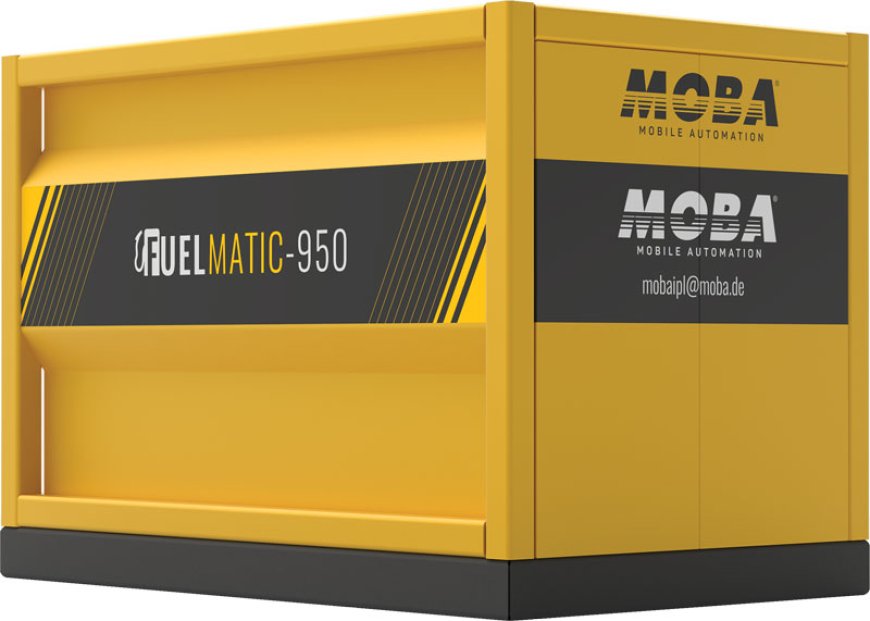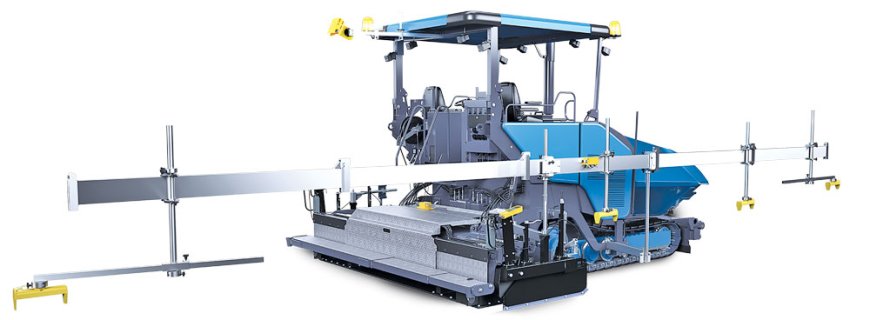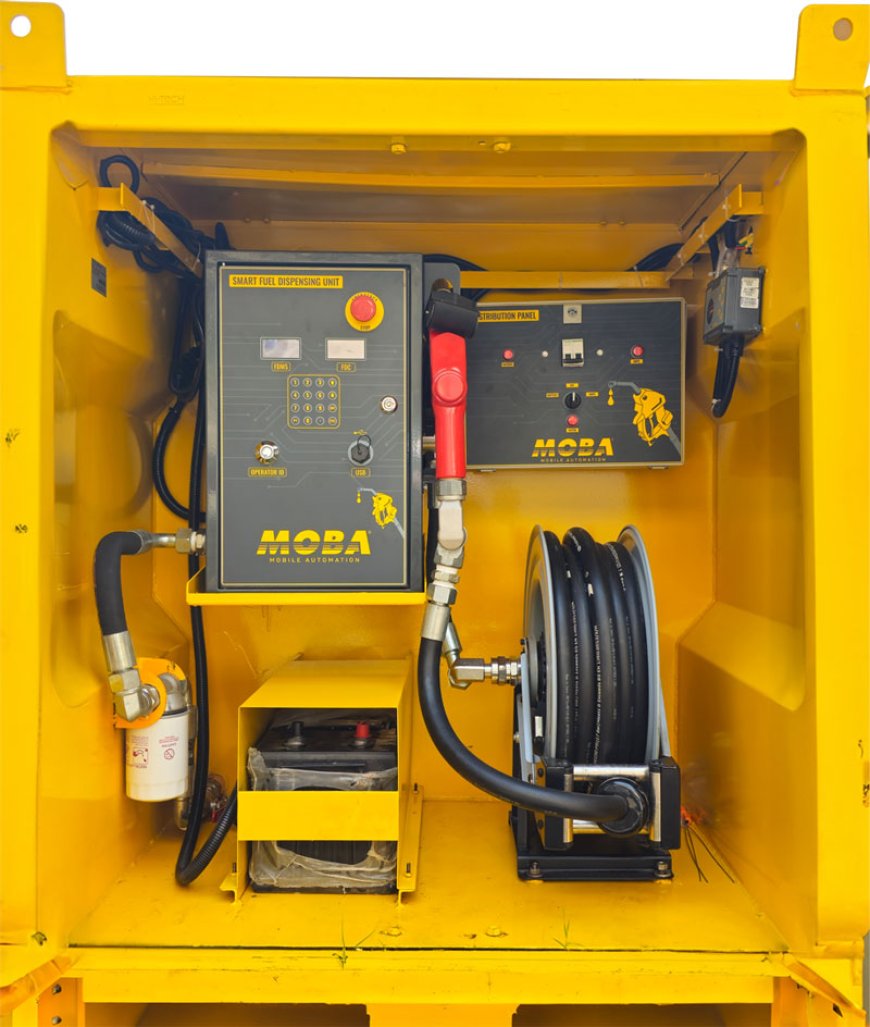Machine control systems significantly enhance efficiency, safety, and overall performance across various construction equipment.

Samip Desai, Director, MOBA Mobile Automation (India)
List and briefly describe the automation and control systems for construction equipment that your company offers.
MOBA offers a comprehensive range of automation solutions, catering to a wide spectrum of machinery used in the construction industry, such as asphalt pavers, compactors, motor graders, diesel bowsers, tippers, dumpers, and more. For instance, in the case of asphalt pavers, our offerings span from basic grade and slope sensors to advanced technologies like the big sonic ski, also known as an averaging system. These systems play a crucial role in ensuring the creation of smooth roads, contributing to the infrastructure development of nations.
What technological advancements has your company introduced in automation and control systems for construction equipment?
MOBA offers a range of solutions tailored to different types of equipment, primarily aimed at enhancing performance and productivity. These solutions encompass both indicative and control functionalities. A significant advantage of MOBA solutions is universal design, compatible with any make and model of machine. Here’s an overview of the equipment-specific solutions provided:
a) Asphalt Paver: Big Sonic Ski ensures smooth, undulation-free paving.
b) Compactor: Compaction Assistance System visually monitors all compactor activities.
c) Motor Grader: 2D and 3D levelling solutions optimize productivity for various motor grader and dozer models.
d) Excavator: 2D and 3D profile making system aids in achieving precise profiles efficiently.
e) Kilver / Bucket Scrapper: Offers 2D and 3D levelling solutions.
f) Diesel Management: Comprehensive site-wide diesel management solutions to prevent theft and pilferages.
g) Complete digital site management to get all site data to remote office using robust telematics and easy to use software and reporting tools.

How do your automation and control systems contribute to improving efficiency, safety, and overall performance of the equipment?
Machine control systems significantly enhance efficiency, safety, and overall performance across various construction equipment. In pavers, they ensure precise material placement, reducing waste and improving surface quality. Graders benefit from automated blade control, achieving accurate grading with minimal rework. Excavators equipped with these systems increase productivity through precise digging and material handling, while soil compactors maintain uniform compaction, enhancing stability and durability of structures. These systems minimize operator errors, leading to safer operations, and optimize workflow, ultimately resulting in faster project completion and higher-quality outcomes in construction projects.
Describe your company’s market share and presence in the automation and control systems sector for construction equipment in India.
Various categories of MOBA products maintain distinct market shares. For instance, in India, MOBA commands nearly 100% market share in asphalt paving solutions. Additionally, MOBA is widely recognized and trusted as a partner among construction companies for various other automation solutions. Many companies opt for MOBA as their key partner in this domain owing to its extensive expertise in construction applications and its durable products and solutions designed to surpass the lifespan of the machinery.

Have you collaborated with other companies or organizations to enhance your automation and control systems?
We value collaboration to continuously improve our automation and control systems. We have engaged in partnerships and collaborations with various companies and organizations to leverage collective expertise, broaden perspectives, and enhance the capabilities of our systems. These collaborations have enabled us to integrate innovative technologies, address industry challenges, and deliver more comprehensive solutions to our customers. We remain committed to fostering strategic alliances that contribute to the advancement and evolution of our automation and control offerings.
What challenges do you face in the development and implementation of automation and control systems for construction equipment in the Indian market?
Several challenges hinder the development and implementation of automation and control systems for construction equipment in the Indian market. These include technological infrastructure limitations, varying regulatory standards, and the need for tailored solutions to suit diverse applications and operating conditions. Additionally, the high initial investment required for automation systems poses a barrier, especially for small and medium-sized enterprises. Cultural factors, such as resistance to change and a preference for traditional methods, also impact adoption rates. Overcoming these challenges demands robust R&D, effective collaboration with stakeholders, and targeted efforts to address market-specific needs and constraints. We still have machines with less electronic controls and these machines are often difficult to automate.

How does your company ensure that its automation & control systems comply with relevant industry standards and regulations in India?
MOBA works closely with many contractors to understand the issues faced by the industry and together work on developing effective solutions which are validated by the companies and end users on field. The result or reports are then shared with the stake holders who give us their final nod, the product resulted out of this exercise is most of the time a direct fit for other companies working in the same field and can then be deployed at other sites with minimal modifications. Our compliance and validation team study statutory requirements at regular intervals to ensure that our products comply to the required standards.
What trends do you foresee in the future of automation and control systems for construction equipment in India?
In the future of automation and control systems for construction equipment in India, we anticipate a surge in IoT integration for real-time monitoring, predictive maintenance, and fleet management. Autonomous construction equipment will rise, bolstering productivity and site safety. Electric and hybrid machinery will gain traction for sustainability, with tailored control systems optimizing their performance.








